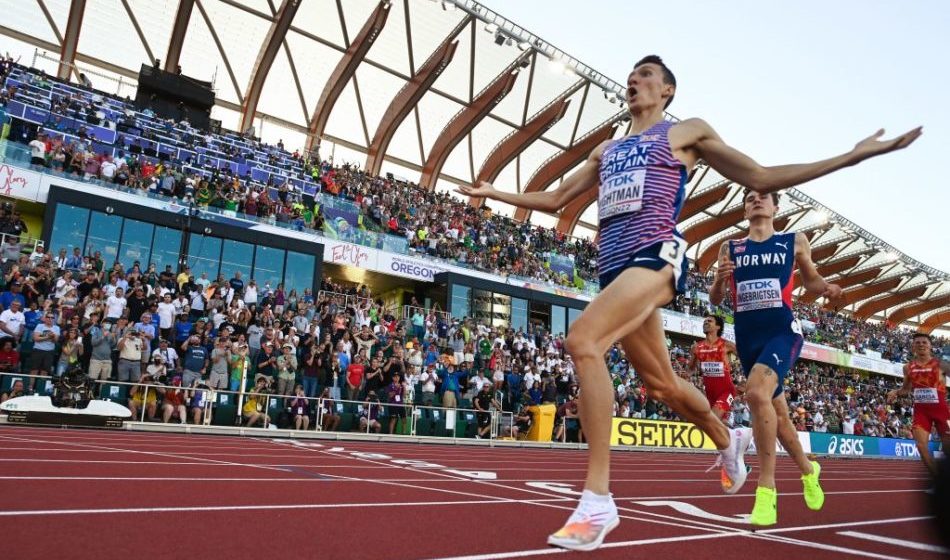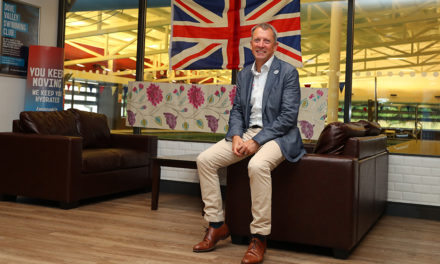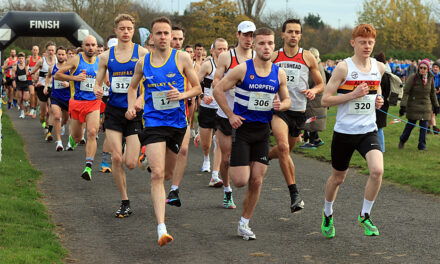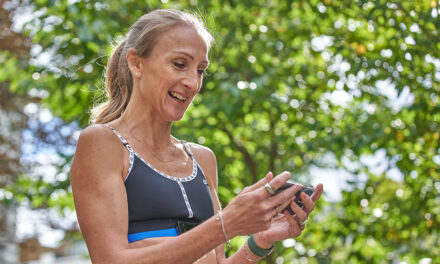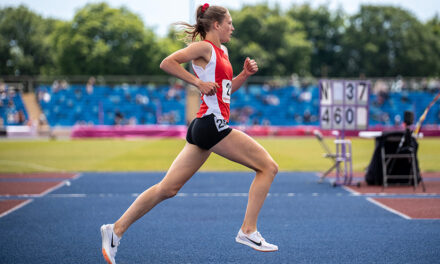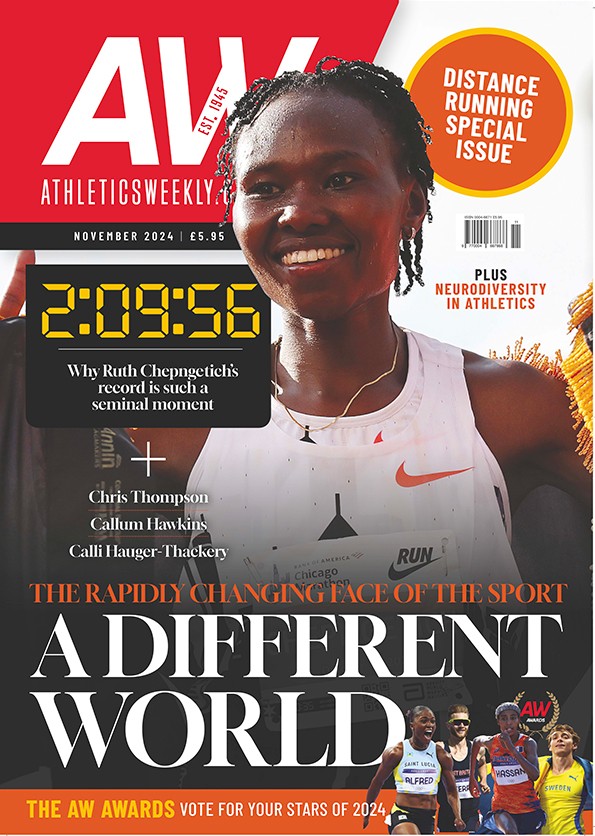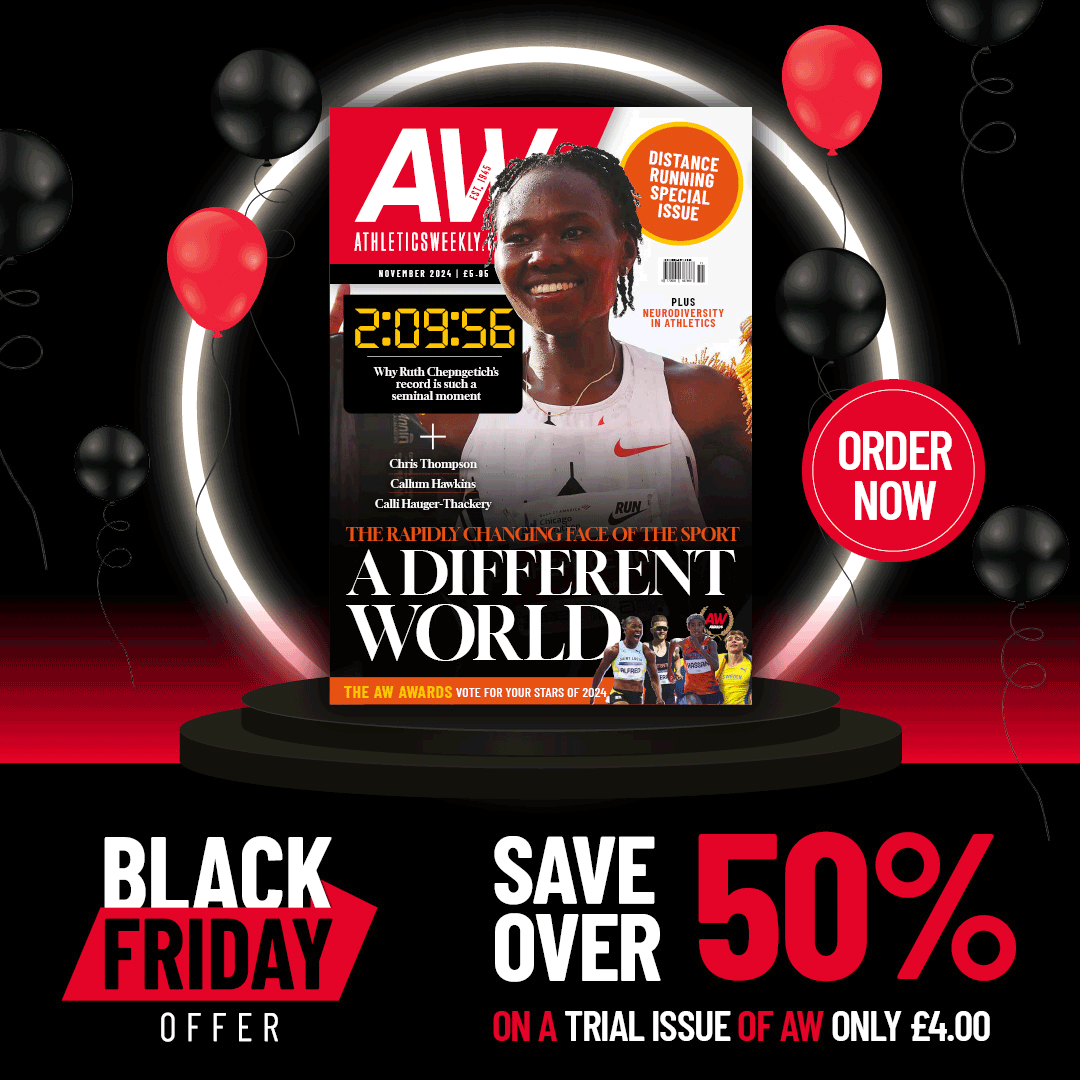This summer’s big event in Eugene, Oregon, promised much, but did it deliver?
Wednesday July 13
I’m covering these World Championships with my colleague Euan Crumley and we arrive at our hotel in Corvallis after a 90min drive from Portland Airport. Coincidentally the British team’s holding camp at the Whyte Track & Field at Oregon State University is only a 10-minute jog from where we’re staying, but it is surrounded by big signs saying “trespassers keep out”. It’s tempting to break in for a jetlag-induced 5am run on the track but I don’t fancy getting deported.
Over in Eugene we pick up our accreditation and visit the Puma house – which is one of several areas that shoe companies have set up as hospitality centres. In one of many pre-championship media events, they wheel out their impressive roster of athletes. These include Karsten Warholm, who describes his past few injury-ridden weeks as “hell”, plus Yaroslava Mahuchikh, who reacts to the idea of Russian athletes competing by calling them “killers” due to their nation attacking her native Ukraine.
Thursday July 14
We meet up with Peter Thompson, an Oregon-based British endurance coach, who gives us a brilliant tour of Eugene. Super-experienced and full of passion for the history and heritage of the area, he takes us to see Pre’s Rock, Pre’s Trail, murals of The Simpsons in Springfield and many other sights during a fascinating couple of hours. Peter is now my favourite person in Eugene.

Pre’s Rock (Getty)
Friday July 15
It’s the first day of athletics in the majestic and ‘reimagined’ Hayward Field and the media section in the stadium feels the full force of the strong sunshine. It’s not as hot as the heatwave in western Europe but it’s still too hot and bright to work so we decamp to the nearby media centre.
Later we spend some time at an ASICS hospitality house which is little more than a javelin throw’s distance from the stadium. It’s an oasis in the heat with food and drink and a conveyor belt of current and former athletes coming in and out of its doors.
The first day of athletics is fairly quiet but ends with an exciting finish to the mixed relay. I’m not usually a fan of the mixed relay but I might change my view after seeing Dominican Republic and the Netherlands pass the United States in the dramatic final metres.

Fiordaliza Cofil strikes gold (Getty)
Saturday July 16
After a quiet first day, we’re now straight into some of the most highly anticipated events of the championships. These include the men’s 100m final, where the host nation set out their stall by claiming a clean sweep of the medals. Everyone is interested to see whether the first world championships in the United States will be a ‘success’ and some people are surprised that there are empty seats during the action. But I reckon many of the fans who bought tickets for these seats are simply walking around the stadium concourse or standing in massive queues for hot dogs or popcorn. Americans seem to treat it like a movie experience and the plush green seats in the stadium are cinema-standard too.
Sunday July 17
Covid concerns begin to escalate as news emerges of a ‘cluster’ of Japanese athletes who have tested positive. High jumper Morgan Lake is one of several Brits unlucky enough to catch the virus. Neil Gourley is another as he struggles in the 1500m rounds and admits he tested positive a few days earlier. It’s not long before organisers send out a memo to the media recommending masks in indoor areas.
Today’s action starts with a men’s marathon that is minus Chris Thompson. I sympathise with his visa issues as myself and Euan discovered in the run-up to the championships that the process is complicated and expensive, especially if you live outside London and have booked an embassy appointment when there’s a national rail strike.
At midday there is a spectacular finish to the women’s 10,000m won by Letesenbet Gidey. The evening sees the women’s 100m with Shelly-Ann Fraser-Pryce proving a popular winner. Such is the standard, Dina Asher-Smith equals her British record but finishes just outside of the medals.

Letesenbet Gidey (Getty)
Monday July 18
Most days start with an early morning run around Corvallis and I usually head toward Oregon State University campus. The facilities are amazing and I can understand why promising athletes from outside the US are keen to get scholarships here.
Back in Eugene a big debate is unfolding about Devon Allen’s false start in the 110m hurdles final. The American was one thousandth of a second inside the allowed reaction time of 0.1sec, but surely a line has to be drawn somewhere in the rule book. If we just let people off because they were “close enough” then sporting chaos would ensue. However, if the 0.1sec reaction time is not ideal then World Athletics need to look at changing the rules.
On the track there is no disputing the women’s 1500m results, though, as Laura Muir battles her way to bronze behind Gudaf Tsegay and winner Faith Kipyegon.
Tuesday July 19
The Museum of World Athletics has a temporary exhibition near Hayward Field and it is proving popular with visiting fans. Today there is a special gathering, too, with MOWA director Chris Turner thanking athletes who have donated items.
In attendance is Seb Coe plus legends like Nawal El Moutawakel, Willie Banks, Daley Thompson, Eamonn Coghlan, Mike Powell, Sonia O’Sullivan, Aries Merritt and more. It is a track nut’s heaven and amusingly a round of applause for triple jumper Banks gradually morphs into the rhythmic clap that he helped popularise in the 1980s.

Museum of World Athletics
In the evening the much-anticipated men’s 1500m does not disappoint as Jake Wightman out-kicks Olympic champion Jakob Ingebrigtsen to win a surprise gold. He uses the same tactics as Steve Cram employed at the first World Champs in Helsinki in 1983, too, by kicking into the lead with 200m to go, forcing his rivals to run wide on the final bend before giving it his all as he entered the home straight.
One of the many post-race stats to emerge is that one of Wightman’s early races was a humble British Milers’ Club “F” race in Manchester in 2012. Looking at the coverage in AW at the time I realise I was actually there and even mentioned Wightman’s race (which was won by Will Paulson) at the end of a two-page report that was otherwise dominated by Ross Murray clocking a largely solo 1500m in 3:36. Not surprisingly, though, I have zero recollection of watching the young Wightman in action. Some talent-spotter I am.

Jake Wightman (Getty)
Wednesday July 20
Back at the ASICS house the Ukrainian team hold a press conference to talk about how they are handling the competition in Eugene when their country is at war with Russia. “We are so lucky to have Worlds and Europeans in the same season as it gives us a ‘separate life’,” says high jumper Yuliya Levchenko. “It is good for our soul.”
Later I bump into a couple of guys from parkrun who are trying to set up one of their events in Eugene. There are already a large number of parkruns in North America but the 5km phenomenon has yet to infiltrate TrackTown USA.
At the stadium the athletes and fans are sweltering in the warmest temperatures of the championships so far as the thermometer hits 33C. It very much feels like the halfway point in the championships, too, with the session largely full of heats and rounds.
Thursday July 21
The only event in the stadium this morning is the media race. Well over 100 journalists and photographers take part and the standard is higher than ever with Guillaume Laurent of Switzerland winning in 1:54.62.
Geoff Wightman is on hand to commentate and the official starter is 1987 world 1500m champion Abdi Bile. It used to be that if you turned up wearing spikes you’d get ribbed for taking it too seriously but today there are several runners wearing spikes and even some ‘super spikes’ on show. The only downside is that there is no ‘comedy music’ on the tannoy like previous years.

Media race (l to r): Ben Bloom, James Rhodes, Euan Crumley, Jason Henderson
Myself and Euan enjoy a burn-up over two laps and then head out on to the nearby Pre’s Trail to experience the famed woodchip running route which was named after the iconic US record-breaker Steve Prefontaine.
In between this I jump on to BBC London to chat about athletics during their early evening sports round-up in the UK. Not surprisingly they want to hear about Wightman’s exploits, as his story has dominated the news at home.
Before heading to the stadium for the evening session we bump into Daley Thompson, who asks “are you the guys from AW?” before having an interesting 10-minute chat about the event. “How would you have handled this summer’s three championships?” I ask. “I would definitely have done all three!” the decathlon legend answers without hesitation.
Friday July 22
The British media enjoy an audience with Jack Buckner at the Graduate Hotel in Downtown Eugene. In addition to being the new chief executive of UK Athletics, Buckner ran 13:21.06 for 5000m at the Pre Classic in Eugene in 1985 – a time that would have qualified for the final at these World Championships. During an interesting hour of chat, he sets out his battle plan and I walk away thinking there is a huge amount of work to tackle but perhaps no one more suited to the task.
Sydney McLaughlin is the stand-out performer during the evening session – and probably the championships in total – as she sets a ‘Warholm-esque’ 50.68 world record in the women’s 400m hurdles. Among other things it’s been a good week for New Balance with McLaughlin and Wightman wearing their shoes.

Sydney McLaughlin (Getty)
Saturday July 23
Suddenly we’re going into the penultimate day of the champs and the evening session features some typically unpredictable sprint relay finals. Andre De Grasse anchors Canada as they beat the United States, whereas the host nation defeat the seemingly invincible Jamaicans in the women’s race. The British men’s team nab a well-deserved bronze but Dina Asher-Smith worryingly pulls up in the women’s race and refuses to speculate about the nature of the injury in her post-race interviews.
There is drama after the women’s 5000m final too when a couple of protestors from Tigray jump on to the track to congratulate Gudaf Tsegay and Gidey. They are quickly grabbed and escorted out by police but soon afterwards they stage another protest in the concourse.
“Free Tigray” protestors demonstrating on the concourse at the World Champs in Eugene.
One banner reads: “The Tigrayan-Ethiopian athletes’ families are under siege. Gidey hasn’t spoken to her family for 2 years! Pray for Tigray.” pic.twitter.com/dU1mi1Y1qP— AW (@AthleticsWeekly) July 24, 2022
Outside the stadium I also catch up with former international runner John Mayock who now works for INEOS and the Daily Mile. A partnership between World Athletics and the Daily Mile has led to hundreds of schools in the area adopting the idea and I also chat to Mayock about his heyday as an athlete as he was one of the nation’s leading middle-distance runners during my early days at AW.
Sunday July 24
Seb Coe stages his end-of-championship press conference and fields a variety of questions ranging from “when will Africa host the World Champs?” to “why aren’t masters races included in these championships anymore?”
He tackles them all head on, but is keen to promote the fact that 40% of athletes at the championships are aged under-25 and 51% are competing at their first World Champs. He adds that the true litmus test of the sport’s health will not be seen in Eugene but at the World Under-20 Championships in Cali.
As the final session of the championships gets underway I’ve arranged to meet Gareth Balch, a former 800m runner who now runs the Two Circles sports marketing agency that UKA has signed up to help promote its events. I thought it would be a quiet start to the evening but there is a world record in the women’s 100m hurdles semi-finals from Tobi Amusan.

Athing Mu wins (Getty)
It’s a sign of things to come as the next few hours are incredibly busy with a nail-biting 800m battle between Athing Mu and Keely Hodgkinson, a supreme win in the 5000m from Jakob Ingebrigtsen and a world record in the pole vault from Mondo Duplantis.
It’s a manic few hours with myself and Euan darting from our seats in the media tribune to the mixed zone and back, speaking to athletes, writing reports, zapping out social media updates, downloading images and putting together graphics. Feeling a little breathless after such an incredible final night, we begin our drive back to Corvallis before continuing to write reports for a couple of hours at least.
Meanwhile, the athletics infrastructure at Hayward Field is being dismantled as 10 days of action come to an end. As one of my old AW colleagues, Tony Ward, was fond of saying: “The dog barks and the caravan moves on.”
Now for the journey home, a few days of relative normality and then on to cover the Commonwealth Games in Birmingham.
» To catch up with all our reports from Eugene, CLICK HERE

